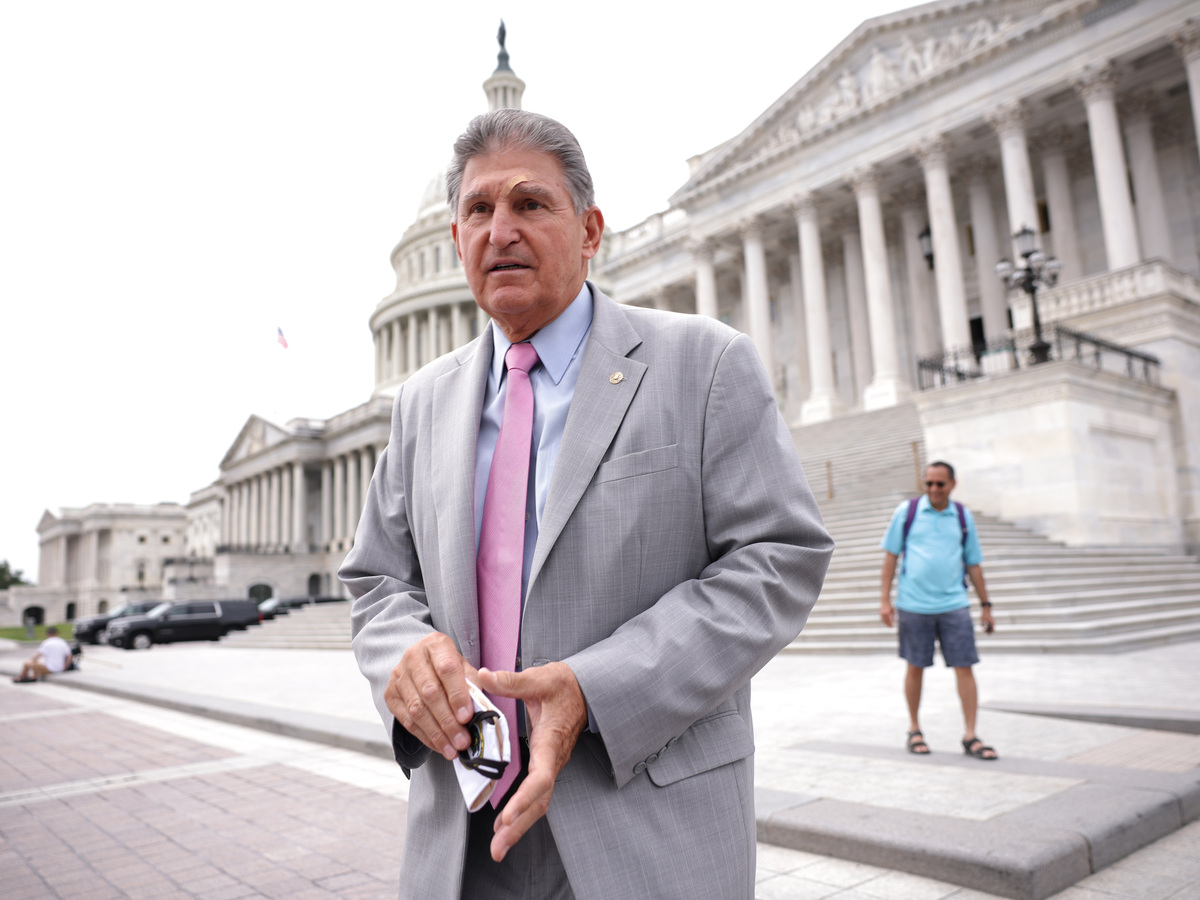More And More Democrats Embrace The ‘Progressive’ Label. Here’s Why

Enlarge this image
Hillary Clinton and Bernie Sanders had a heated debate in 2016 about what «progressive» means. Even now, it’s not totally clear.
Melina Mara/The Washington Post via Getty Images
hide caption
toggle caption
Melina Mara/The Washington Post via Getty Images

Politics
Manchin Calls On Democrats To Hit Pause On The $3.5 Trillion Budget Package

Elections
Democrats Crowd Cleveland For A Primary That Reflects Party Tensions
And, to be upfront, I myself used the word «progressive»…er…liberally throughout the piece.
But then, the word is so widely used that its meaning depends on the user. To track its recent rise is to tell a story about the divisions currently within the Democratic Party, as well as how far it has (and hasn’t) shifted leftward in recent years.
According to a quick NPR archives search, the network’s usage of the word to describe Democrats really skyrocketed in 2018, after picking up in 2016 and 2017. That’s also the trend that major U.S. newspapers followed, according to my own news database searches. And it’s not just that left-leaning politicians became more plentiful — the word «liberal,» for example, didn’t pick up in the same way in descriptions of Democrats. In fact, «progressive» virtually caught up to it in the last few years.
Not only that, but a 2018 analysis from the center-left Brookings Institution found that Democratic candidates identifying as «progressive» picked up then…and the word has held on since then.

NPR analysis of ProQuest data
…all of which led me to hypothesize that Bernie Sanders and his 2016 presidential campaign might have something to do with it. So I asked Faiz Shakir, Sanders’ former campaign manager in 2020, about the word. And he gave me a surprising answer.
«I’ll be honest with you, I don’t use the term ‘progressive,'» he said. «If somebody calls me ‘progressive,’ I’m fine; I’m not going to run away from it. But I do tend to think it has lost a lot of meaning.»
To Shakir, economic policies that prioritize individuals over corporate interests are progressive. That means there’s nuance in his definition: for example, he says he would consider the relatively moderate Montana Democratic Sen. Jon Tester a progressive.

Politics
How House Democrats’ Campaign Chief Plans To Defy History In 2022
But Shakir also thinks the term has been stretched beyond its roots.
«Over time, what has happened was the word ‘progressive’ became so popularized that it started to basically encapsulate everything in the Democratic Party,» Shakir continued. «It almost became synonymous with, in my mind, the Democratic Party — the Democratic Party is progressive, progressive is the Democratic Party.»
The word means different things to different people
In U.S. history, the word often refers to the Progressive Era in the early 20th century, when activists advocated for a variety of reforms — some were economic, like the fight for greater regulation of industry, and some were social, like the fight for women’s suffrage and prohibition. But even then, the movement contained a variety of beliefs.
These days, it’s not hard to find a range of definitions of the word. Consider two D.C. institutions located just blocks from each other: the Progressive Policy Institute, a centrist think tank founded in 1989 by the also-decidedly moderate Democratic Leadership Council, and the Progressive Campaign Change Committee, an advocacy organization that backed Elizabeth Warren in 2020.
To Adam Green, co-founder of PCCC, «progressive» has valences of populism, boldness, and fighting the establishment.

Enlarge this image
Massachusetts Sen. Elizabeth Warren was a favorite among further left Democrats in the 2020 presidential primaries.
Mark Ralston/AFP via Getty Images
hide caption
toggle caption
Mark Ralston/AFP via Getty Images

Enlarge this image
Rep. Pramila Jayapal, D-Wash., is chair of the Congressional Progressive Caucus. She has backed anti-trust legislation opposed by some centrists in her party, as well as sweeping climate actions in the framework of the Green New Deal.
Shannon Finney/Getty Images for Green New Deal
hide caption
toggle caption
Shannon Finney/Getty Images for Green New Deal

Enlarge this image
While Democrats have embraced the term «progressive» and more liberal policy positions in recent years, their thin majorities in Congress give moderates like Sen. Joe Manchin, D-W.Va., lots of influence over the party’s agenda.
Kevin Dietsch/Getty Images
hide caption
toggle caption
Kevin Dietsch/Getty Images
While Democrats have embraced the term «progressive» and more liberal policy positions in recent years, their thin majorities in Congress give moderates like Sen. Joe Manchin, D-W.Va., lots of influence over the party’s agenda.
Kevin Dietsch/Getty Images
The word «progressive» has become a tool to appeal to those further-left-leaning Americans without alienating the moderates and independents who reject the «liberal» label.
Saying «progressive» dodges that L-word, Kamarck says: «It’s an effort to shed a bad label. That’s why, pure and simple.»
That full coalition has only delivered Democrats razor-thin margins in Congress as the party tries to pass an infrastructure bill crafted by moderates and a larger budget package championed by further-left Democrats like Faiz Shakir.
«You know, literally all of the benefits that will go out will go almost entirely to like working class and lower income and middle class families across America,» he said. «So, you know, that to my mind is a major progressive-era accomplishment.»
But only if it passes. And right now, it’s threatened by the huge power wielded by moderates. West Virginia Democrat Joe Manchin says he wants his Senate colleagues to «pause» that bill … and they need every Democrat to get it done, no matter how progressive they are.














Комментарии 0